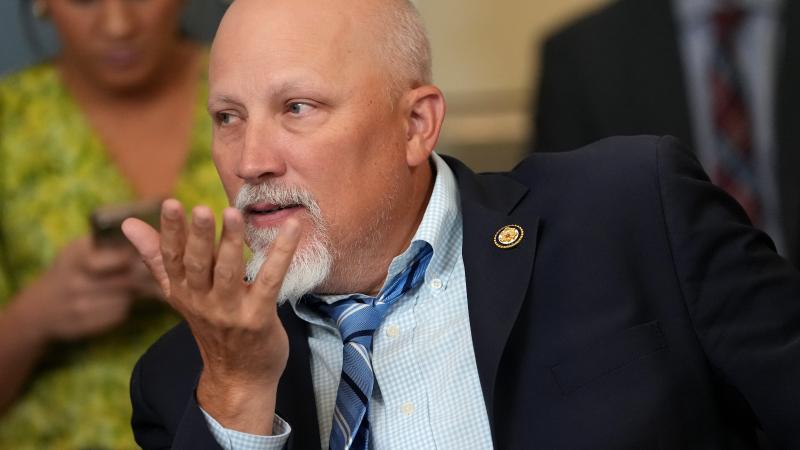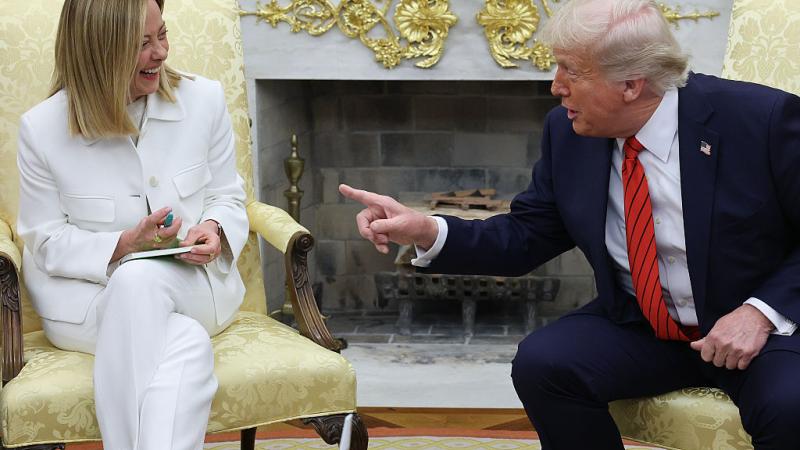Robert F. Kennedy, Jr. sues Maine election official over ballot process
Under Maine's election law, non-party presidential candidates must file petitions with at least 4,000 signatures of registered voters by Aug. 1 to qualify for the November ballot.
(The Center Square) — Presidential candidate Robert F. Kennedy Jr.'s campaign has filed a lawsuit against Maine over what it calls an "unconstitutional" ban on independent candidates collecting petition signatures during the upcoming presidential primary.
The legal challenge, filed in U.S. District Court, argues that presidential candidates not on the March 1 Super Tuesday primary ballot should be allowed to collect petition signatures inside polling places like other hopefuls.
In the complaint, Kennedy's lawyers blasted Secretary of State Shenna Bellows as "out of control" and called her a "Democratic partisan hack" who was "disinterested in the rule of law."
Under Maine's election law, non-party presidential candidates must file petitions with at least 4,000 signatures of registered voters by Aug. 1 to qualify for the November ballot.
Kennedy's legal challenge alleges that his campaign was initially told they could gather signatures in polling sites during the primary but that Bellows "suddenly" issued a ban on the practice. The lawsuit asks a judge to allow third-party and independent candidates to collect signatures inside primary polls.
In response to the lawsuit, Bellow's office defended the move to bar Kennedy from gathering signatures on Super Tuesday and said it is prepared to defend Maine's election laws that "provide for free, fair, and secure elections."
“Maine law is very clear: within the voting place itself, a person may not influence another person's decision regarding a candidate for an office or question that is on the ballot for the election that day," Bellows said in a statement. "That’s why no presidential campaign can collect signatures on presidential primary day."
Bellows noted that the restrictions aren't a complete ban on signature gathering at polling sites and said the Kennedy campaign would be allowed to collect signatures in June during municipal elections.
"It’s important to recognize that it’s when a candidate’s office is on the ballot, that they cannot collect signatures because, for good reason, Maine law prohibits political activities that influence a voter," Bellows said in the statement.
Kennedy, the son of the late U.S. Attorney General Robert F. Kennedy and nephew of President John F. Kennedy, initially filed to run for the White House as a Democrat.
But in October, the anti-vaccine crusader announced that he is running as an independent, and his campaign is currently trying to get his name on the November ballot in dozens of states. He has qualified for the ballot in Utah and New Hampshire, according to his campaign.
The move is likely to impact the presidential race, which appears to be heading toward a rematch between former President Donald Trump and incumbent Democratic President Joe Biden, but it’s unclear whether Kennedy will make the ballot in enough states to siphon away votes from Trump or Biden.
A recent poll shows Biden and Trump on track to win Maine's Super Tuesday presidential primaries. The University of New Hampshire poll found Trump is supported by 77% of likely Republican voters ahead of the March 5 primary, while Biden is supported by 75% of Mainers who plan to vote.
The only other Democrat on the ballot — Congressman Dean Phillips of Minnesota — received only 3% support. Kennedy wasn't included in the UNH poll.
















